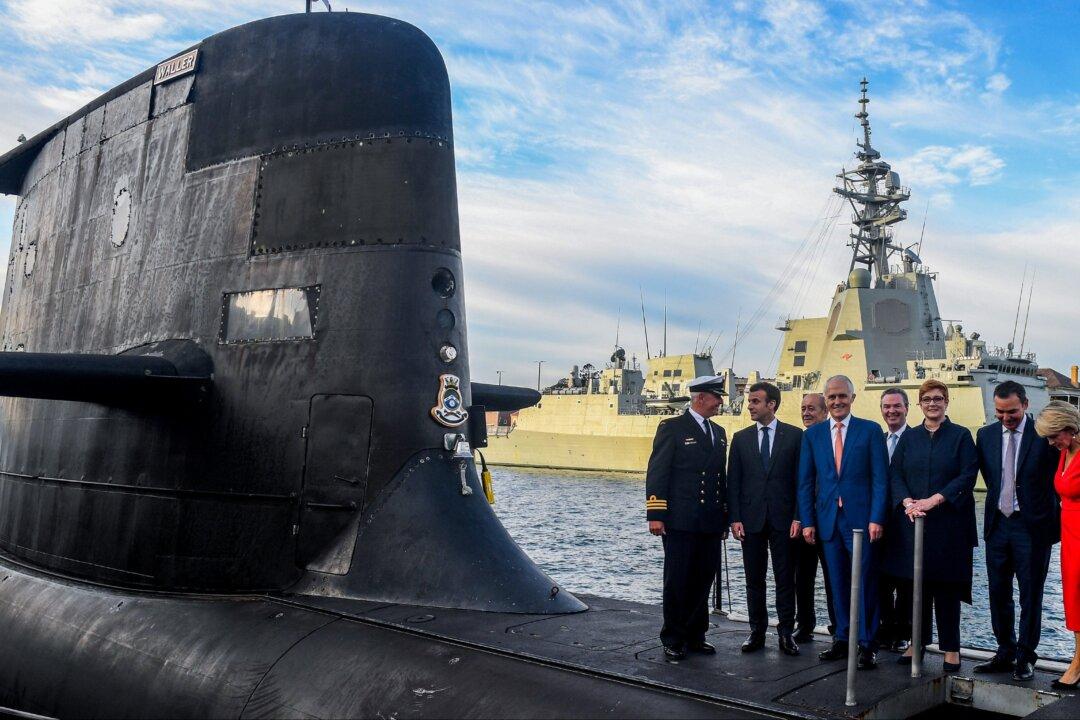French authorities, although upset at being kept in the dark around AUKUS, shouldn’t be surprised at Australia’s decision to cancel the troubled A$90 billion (US$65 billion) Future Submarines Program—according to a defence expert, who now says it’s time for governments to move forward.
Greg Copley, president of the International Strategic Studies Association, said that the trilateral AUKUS agreement between the United States, Australia, and United Kingdom had to be kept tight-lipped until its unveiling last month—which surprised many.





